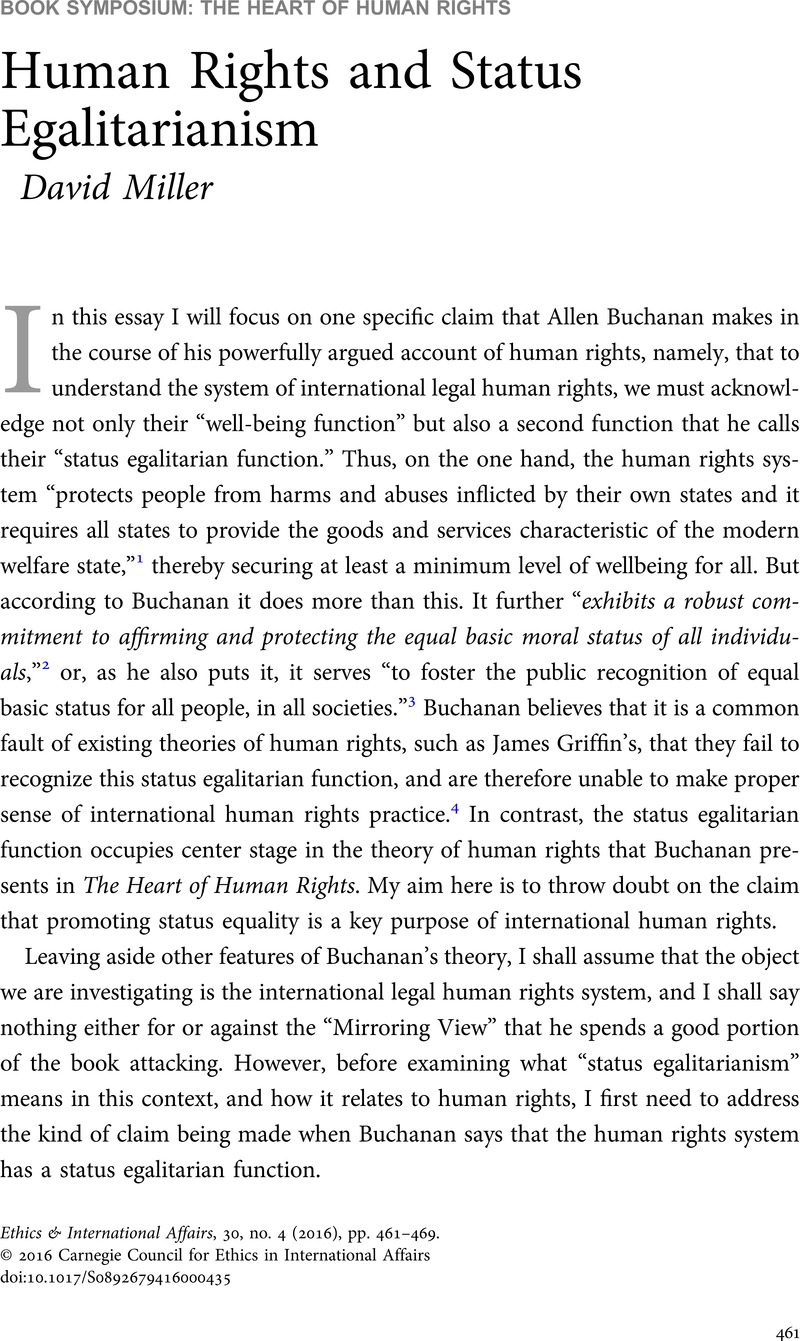No CrossRef data available.
Article contents
Human Rights and Status Egalitarianism
Published online by Cambridge University Press: 08 December 2016
Abstract

- Type
- Book Symposium: The Heart of Human Rights
- Information
- Copyright
- Copyright © Carnegie Council for Ethics in International Affairs 2016
References
NOTES
1 Buchanan, Allen, The Heart of Human Rights (New York: Oxford University Press, 2013), p. 32 CrossRefGoogle Scholar.
2 Ibid., p. 28. Italics in the original.
3 Ibid., p. 88.
4 For his more extended critique of Griffin, see Buchanan, Allen, “The Egalitarianism of Human Rights,” Ethics 120, no. 4 (2010), pp. 679–710 CrossRefGoogle Scholar. This is in response to Griffin, James, On Human Rights (New York: Oxford University Press, 2008)CrossRefGoogle Scholar.
5 Buchanan, The Heart of Human Rights, pp. 91–92.
6 Ibid., p. 37.
7 Ibid., pp. 90–91.
8 Ibid., p. 82.
9 For the full statement, see Buchanan, The Heart of Human Rights, pp. 28–30.
10 Buchanan, The Heart of Human Rights, p. 86. Italics in the original.
11 This idea is famously expressed in one of Ulysses's speeches in Troilus and Cressida:
Muir, K., ed., The Oxford Shakespeare: Troilus and Cressida (Oxford: Clarendon Press, 1982), pp. 72–73 Google Scholar.
12 It is also the route followed by many other philosophers writing on human rights, including Nickel, James, Making Sense of Human Rights, 2nd ed. (Malden, Mass.: Blackwell, 2007)Google Scholar, Beitz, Charles, The Idea of Human Rights (New York: Oxford University Press, 2009)CrossRefGoogle Scholar, Tasioulas, John, “On the Foundations of Human Rights,” in Cruft, Rowan, Liao, S. Matthew and Renzo, Massimo, eds., Philosophical Foundations of Human Rights (New York: Oxford University Press, 2015)Google Scholar, and Miller, David, “Grounding Human Rights,” Critical Review of International Social and Political Philosophy 15, no. 4 (2012), pp. 407–27CrossRefGoogle Scholar, significant differences between these accounts notwithstanding.
13 In an earlier discussion, Buchanan seemed more willing to concede this possibility: “The first five egalitarian items could perhaps be adequately grounded in instrumental considerations alone as providing valuable protections for individual well-being. Recognizing their role in safeguarding equal status augments the instrumental case for them, but it may not be essential.” Buchanan, “The Egalitarianism of Human Rights,” p. 688.
14 Buchanan, The Heart of Human Rights, p. 143.


